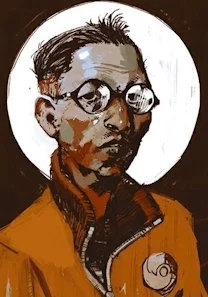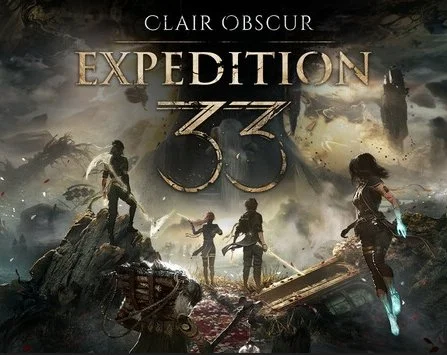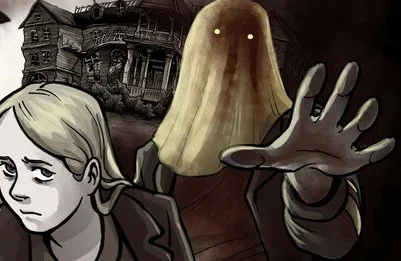Tonal Whiplash and Absurdist Play: How Chaos in Wanted: Dead Engages and Exhausts Players
Most games strive for tonal consistency. They want players to feel grounded, immersed, and emotionally aligned with the unfolding story. Wanted: Dead does the opposite. It shifts from grim cyberpunk violence to surreal side conversations, from heartfelt android tragedy to ramen eating contests, from gunfights to karaoke of 99 Luftballons in the span of minutes. These abrupt changes in tone create one of the most unusual play experiences in recent years. Some players find this chaotic rhythm hilarious and refreshing. Others find it disorienting or even unbearable.
This unpredictable tonal collage provides a window into a deeper psychological phenomenon. Games that reject consistent tone force players into a state of heightened attention. They disrupt emotional expectations, create a style of absurdist play, and generate a sense of controlled confusion. This article examines how Wanted: Dead harnesses tonal whiplash and absurdity, why these tactics engage certain players, and why they repel others. By drawing on concepts from absurdism, emotional regulation, and cognitive surprise, we can understand how a game that sometimes feels incoherent still manages to become memorable.
A Fish Head, a Ramen Documentary, and a Sudden Song Break
If there is one image that captures the essence of Wanted: Dead, it is the fish head. Early in the game, protagonist Hannah Stone sits down to a dinner that consists of a large bowl of broth with a severed fish head floating in it, staring blankly back at her. The scene has no narrative purpose. It provides no lore, no character development, and no mission context. It arrives without explanation and ends without consequence.
A similar pattern repeats throughout the game. Players move from a gunfight through beige corporate halls into an extended documentary about the cultural history of ramen noodles. Immediately afterward, they play a rhythm mini game that requires slurping noodles in time with button prompts. Moments later, they return to violent police combat as if nothing happened. In another sequence the squad discusses an unrelated social topic in a diner, only for the conversation to dissolve into a sudden karaoke performance in the middle of a mission.
These shifts feel like whiplash. They slam players from one mood into another, often without the usual transitions that storytellers use to soften tonal changes. The effect can be comic, confusing, or thrilling depending on the player. It can also feel intentional. Wanted: Dead is full of surreal digressions, but it presents them with total seriousness. The game behaves like a dream that refuses to explain itself.
Absurdism: Finding Meaning in Nonsense
Absurdism offers a useful lens for interpreting this style. In philosophy, absurdism describes the conflict between a human desire for meaning and a world that refuses to provide it. Absurdist works highlight illogical events, unpredictable shifts, and contradictions that never resolve. The purpose is not to mock logic but to reveal how the search for meaning persists even in chaotic conditions.
Wanted: Dead echoes this tradition. It sets up elaborate plot elements, including a corporate conspiracy, an android uprising, and a police unit composed of reformed criminals. Instead of developing these threads, the story often wanders into unrelated scenes. Characters appear and vanish without explanation. Motivations shift without development. Several plotlines simply stop.
This narrative instability forces players to confront their own expectations. Many games reward logical interpretation. Wanted: Dead does not. The player can either resist this and grow frustrated or lean into the absurdity. For some, the refusal to provide clear meaning becomes the point. The game invites players to stop searching for coherence and instead embrace the unpredictability.
This is not accidental charm. It is a style that echoes the surrealism found in titles like Killer7 and Deadly Premonition. These games also combine violence, humor, and existential confusion in ways that undermine narrative logic. Wanted: Dead’s version of absurdism is less philosophical and more comedic, but it functions similarly. The game signals that anything can happen at any time, and the player must either adapt or disengage.
Emotional Regulation and the Rollercoaster Effect
To understand why tonal whiplash can feel exhilarating, we can look at emotional regulation. People often use media to shift or manage their emotional state. A horror movie might provide cathartic fear. A comedy might lift mood. A strategy game might provide focus and calm. What happens when a single work tries to do all of these at once?
Wanted: Dead produces rapid emotional modulation. Violent dismemberment scenes create tension and adrenaline. Moments later, the player might watch a lighthearted anime sequence or listen to awkward character banter. Immediately after, the tone snaps back to deadly seriousness. This constant fluctuation prevents emotional settling. The player remains alert because the game never stabilizes long enough for a single emotional state to dominate.
For some players, this creates a version of what psychologists call arousal jagging. Quick swings between emotional peaks and troughs generate excitement and unpredictability. Even when the content makes no sense, the rapid shifts keep the player mentally engaged because each scene demands a recalibration of expectations.
For other players, the same instability feels exhausting. Emotional whiplash taxes cognitive resources because it requires constant adjustment. Instead of supporting immersion, it becomes a barrier to it. These players might describe the experience as disorganized or overwhelming, not because the game lacks content, but because the transitions are too abrupt to process comfortably.
Uncanny Voices, Stiff Faces, and Dreamlike Mood
Another major source of tonal disruption is the game’s presentation. Multiple reviews note the stiff character models, dead eyed expressions, and oddly accented voice work. Lines are delivered with a flatness that feels detached from the emotional context of the scene. These performances do not resemble the polished acting found in most modern games. Instead, they resemble first takes or unedited sessions.
This uncanny quality makes scenes feel dreamlike. Characters do not behave like typical human beings. They speak in awkward rhythms, use strange phrasing, and jump between topics with no buildup. This heightens the sense that the world of Wanted: Dead is slightly off, as if the player has wandered into a surreal simulation that is only loosely connected to reality.
Psychologically, uncanny performances can heighten attention. When something feels slightly wrong, people tend to focus more closely, trying to understand the cause of the discomfort. That extra focus makes moments stick in memory even if the writing itself is unremarkable. The game becomes memorable because it feels subtly alien, not because it communicates a coherent message.
However, uncanny presentation also risks alienation. Some players interpret awkward acting as incompetence rather than creative eccentricity. For them, the dreamlike quality generates irritation rather than curiosity.
Individual Differences in Taste for Chaos
One of the reasons Wanted: Dead divides players so dramatically is that tolerance for absurdity varies widely across individuals. Some people thrive on novelty. They enjoy strange transitions, unexpected humor, and media that violates standard rules. These players often score high in openness to experience, a personality trait associated with curiosity, imagination, and enjoyment of unconventional art.
Sensation seekers also tend to enjoy chaotic or unpredictable works. They prefer sharp emotional swings and rapid tonal changes. For this group, Wanted: Dead delivers precisely the kind of stimulation they seek. The game feels refreshing because it rejects formula. It constantly surprises, and surprise itself becomes the reward.
Other players prefer stability, clarity, and coherent tone. These players often seek immersion through consistency. They want to feel anchored in a storyworld. For them, abrupt tonal shifts feel like the game is breaking its own contract. Instead of enjoying the unexpected, they feel pulled out of the experience. What one player calls a hilarious tonal swerve, another calls a failure of direction.
This difference in taste helps explain the polarized reviews. One group sees the game as innovative and entertaining, while the other sees it as chaotic and careless. The content is the same. The psychological response is different.
Conclusion: The Power and Price of Deliberate Disorientation
Wanted: Dead uses tonal whiplash and absurdist shifts not as accidents, but as stylistic tools. It creates a fractured emotional rhythm that feels more like a surreal collage than a traditional narrative. This approach can energize players by keeping them in a constant state of surprise. It can also exhaust players who prefer a stable emotional throughline.
Understanding this divide helps clarify why the game resonates so strongly with a subset of players. Absurdity can be pleasurable when it invites curiosity, humor, and imaginative engagement. It can also be alienating when it disrupts immersion or overwhelms emotional pacing. Wanted: Dead sits at the crossroads of these reactions. It is an experiment in unstable tone, and the result is both chaotic and compelling.
The game’s mixed reception is predictable once we understand the psychology behind tonal whiplash. Some players crave meaning and resist nonsense. Others find liberation in a world that refuses to make sense. Wanted: Dead appeals to the latter category by offering not coherence, but unpredictability. The experience is strange, uneven, and often bewildering. That strangeness is not a flaw to be corrected. It is the core of its identity, and the reason it continues to spark fascination.
Sources:
Wanted: Dead | Wanted: Dead Wiki | Fandom
Review: Devil's Third (Wii U) - Nintendojo Nintendojo
Wanted: Dead - Review — Analog Stick Gaming
Wanted: Dead Review - An Off-Kilter Killer
Wanted: Dead - Ninja Whyden? (Review)
Wanted: Dead Is 2023's Jankiest Game, And I Love It - Kotaku








